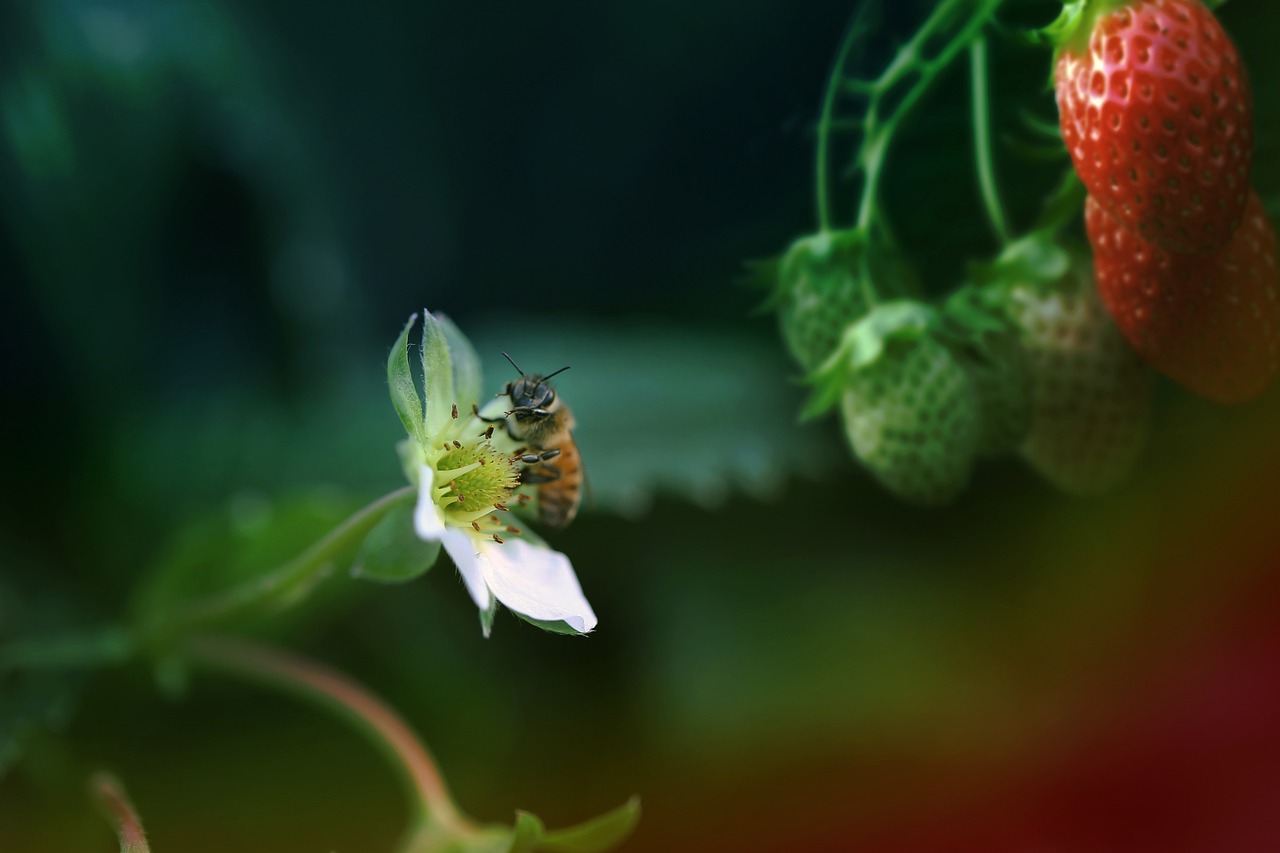The results of a recently published study suggest that insecticides affect bees and strawberries in undesirable ways.
Bees are an important part of many crops, including strawberries. Though strawberries are self-pollinating, it has long been known that when pollinators like honeybees visit strawberry flowers, the resulting fruit is bigger and more uniform in shape. According to a Growing Produce article, a recent study from Lund University in Sweden suggested that insecticides affect bees and strawberries in undesirable ways. Read the details below.
Details of Insecticides Affect Bees and Strawberries
The research, which was published in September in PLOS ONE, had two takeaways. The first was that insecticides affect bees by making them slower. According to the article, Lina Herbertsson, a Biology Researcher with Lund University said, “We studied bees that ingested clothianidin, a pesticide that was previously used in rapeseed to control flea beetles. Our study indicates that substance made the bees slower and impaired their ability to pollinate the strawberry flowers.”
The second takeaway was that plants treated with clothianidin had smaller strawberries than those not treated. While the researchers maintained that they did not know for sure why the strawberries were smaller, it seemed there was a connection between the smaller strawberries and the clothianidin treatment causing bees to be slower and less adept at pollinating the plants. “In our study we did not identify the cause for the lower strawberry weight, and after only having performed a single study under rather special circumstances, we also don’t know if this is a general pattern,” Herbertsson said.
Griffin Fertilizer is committed to helping both growers and ranchers make sound agronomic and economic decisions in order to maximize the health of their grove and pasture. As a full-service custom dry & liquid fertilizer blender and crop protection product distributor, we will continue our mission to further advance Florida agriculture. For questions or concerns about your farm or pasture, contact us and one of our team will be in touch.

